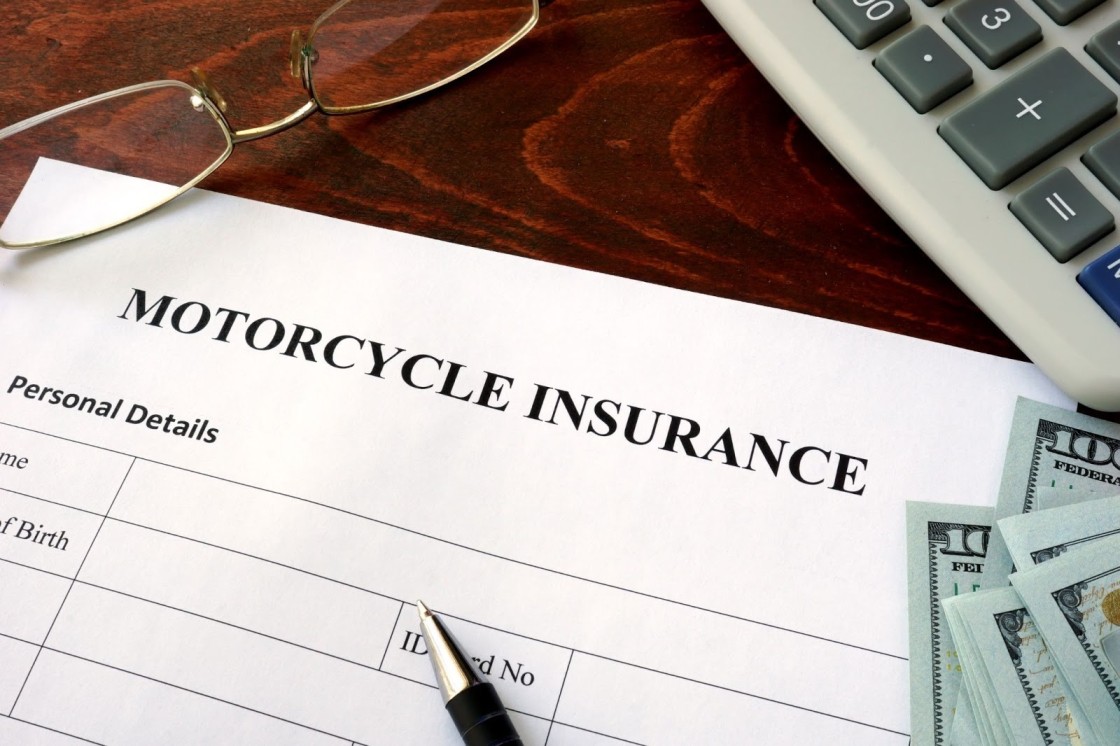General Insurance Blogs, Articles & Updates by - Magma HDI
Have us call you
- RENEW YOUR POLICY
- BUY NEW POLICY

Upgrading your car? Why do you need to consider these five factors?
So, you have got a promotion and decided to upgrade your car. When you choose to upgrade your vehicle, the first thing you feel is nothing but complete excitement. However, in reality, it takes more than just excitement to upgrade a car. You might like to consider many other reasons before selling your current vehicle and getting a new one.
You have to introspect on the very first factor: how necessary is it to upgrade your car? Because with upgrades, the cost of maintenance and CAR INSURANCE changes too. Let us help you to decide if upgrading is a rewarding decision for you or not.
1. Budgeting: Car is an expensive and fast depreciating commodity. If you think you have got enough money to upgrade the car, you must decide on a precise budget you can spend on the new car. Another point is the type of car you want to upgrade. See the model, features, and warranty policies of the car and check if it justifies your requirements. Rather than only visual choices like the colour and design of the car, you must also focus on its features and comfort.
2. Monthly maintenance cost: Make sure you can pay the EMIs, maintenance, and other hidden costs with ease without stressing your budget. Car is like a perpetual drain on your pocket. So pay attention to hidden fees like fuel, repairing, servicing, registration, or car insurance policy.
3. Usage of the car: A small to a medium car (preferably electric) would be fuel-efficient and easy to use if you live in a metro city. It is convenient for driving, and you can park it easily. Be mindful that bigger cars require more parking space and can be an everyday hassle if you live in a crowded area with no dedicated parking.
If your family size increases, you need to choose the car with the ideal cabin space to accommodate all your family members and enough boot space for luggage.
4. Higher annual insurance: While the upgradation will enhance your comfort level, it's necessary to consider the impact on your car insurance premium. The higher the cost of the car, the more you have to pay to insure it. Usually, expensive vehicles have very high premiums. Therefore, it's better to estimate the annual car insurance cost than to put sudden stress on your pockets.
5. Smart features: If you are an auto-enthusiast, have a passion for cars, and can afford a luxury vehicle, you should go for a premium car. Try to get some smarter and better features when you upgrade your car. It includes light bars, a GPS, reverse-parking assist cameras, cruise control, auto-pilot, keyless entry, and a better sound system. Safety features like airbags should be the top priority. High-budget cars also bring other safety features like anti-theft alarm technology, anti-lock braking system (ABS), and traction control.
And a final thought before you decide on a model, changing your old vehicle is the best occasion to refresh your lifestyle, but you need to stick to your budget and surf for multiple options. Research thoroughly and find the best deal for the vehicle. By considering the above points, you will not regret the thought of upgrading your car.
Are you looking for a Car Insurance policy? To know more about it, click HERE.
Disclaimer: The information provided above is for illustrative purposes only. To get more details, please refer to policy wordings and prospectus before purchasing a policy.

Relocating to another city for work? Tick all these boxes.
Starting a new job or getting transferred to another city is stressful already. What adds more to it is the requirement to move away from your current city. The transition is exciting, but at the same time, when you imagine the severity of the relocation process, you feel daunted. Naturally, it will be a bit on the tougher side to figure everything out by yourself.
Shifting to a new city means finding a place to live, adapting to the type of weather, language, people, food, lifestyle, and culture. While some like to experience the newness of a place, others find it challenging to accommodate themselves. Either way relocating is nerve-wracking.
Here's a quick guide to making relocating easy for you.
1. Logistics: The very first thing you must plan is shifting your belongings. Whether it is your personal valuables or simply your furniture, these are the things that cannot be left unattended by just anyone. Therefore, choose a trustworthy packers and movers company with a good reputation for helping you migrate your stuff. To search for the best packers and movers in your vicinity, customer reviews or company ratings available on the internet can be of great help!
2. Prepare a budget and checklist: Keeping your expenses in check isn't simple at all in such hurried times. Hence, preparing a budget for every payment caused will help you save some bucks and refrain from spending on redundant things. It will also aid you in attending transactional details. Similarly, creating a checklist will ensure not leaving anything behind for the last moment hassle.
3. Acquaint the location: It is better to have some knowledge about the city you are planning to move to. Find a good home broker or take your network group's help for some references already living there. Making contact with the locals beforehand, such as your colleagues and people in your society (if you have found an apartment), will prove helpful when settling in the new city.
4. Traveling arrangements: After checking out all the boxes mentioned above, the last thing that remains is how you will get there. If you plan to take a flight or train, ensure you book it before time and not at the eleventh hour. This will not only secure travelling but also get your money and time saved.
5. Insurance for your goods: It is highly recommended to secure your goods and chattels with transit insurance before having them packed and moved. No one can guarantee zero damage to the goods that are to be shifted, but you might be able to cover the loss by getting paid for it. The transit insurance policy covers all possible perils to the items. Whereas for things like your vehicle, get CAR INSURANCE to prevent damage cost.
On a conclusive note, migrating to a new city is not the same trouble as it used to be decades ago. With all these services and networking through various platforms, it has become convenient to plan out relocation. However, everything seems to fall short when you are actually at it.
Hence, we came up with a list of things to assist you in your new start hoping that it will help. Wish you a Happy Moving!
To get the best car insurance Motor Insurance, click HERE.
Disclaimer: The information provided above is for illustrative purposes only. To get more details, please refer to policy wordings and prospectus before purchasing a policy.

Aerophobia – How to overcome the fear of flying next time?
Roughly around six million people are flying somewhere every day. Air travel has become a necessity for most of us for multiple purposes; study, work, holiday, and different other reasons.
Air travel brings in a different excitement of seeing the world from a bird-eye view. But some of us are still terrified of travelling on an aeroplane. Air travel is not an easy game for all. These are all signs of aviophobia, from feeling groggy to having a panic attack during or before a flight. And this fear and anxiety can hold you back in your life. With that in mind, here are a few tips to help you overcome the fear of flying before and during your flight.
1. Recognize your fear: Extreme avoidance of planes or anything in association with flying like airports is considered the fear of flight. According to psychologists, people with severe aerophobia organize their life around avoiding flying. When stepping onto a plane, you may be afraid of a single or a range of things like noises and sensations during takeoff and landing or sudden or prolonged turbulence. Therefore, it is crucial to figure out what triggers your flight-related anxiety so you can take steps to anticipate or avoid it.
There can also be underlying reasons for aerophobia such as claustrophobia – fear of enclosed spaces, agoraphobia – fear of crowds, acrophobia – fear of heights, or simply uneasiness of not being in control. It is necessary to treat these baseline anxieties. You can try taking small steps to deal with them; for instance, choosing the aisle seat will make you feel less restrained by giving you the freedom of movement. It will also help you avoid looking out of the window if you are uncomfortable with heights.
There can also be underlying reasons for aerophobia such as claustrophobia – fear of enclosed spaces, agoraphobia – fear of crowds, acrophobia – fear of heights, or simply uneasiness of not being in control. It is necessary to treat these baseline anxieties. You can try taking small steps to deal with them; for instance, choosing the aisle seat will make you feel less restrained by giving you the freedom of movement. It will also help you avoid looking out of the window if you are uncomfortable with heights.
2. Distractions can be saviours: Keep your mind off it. Many people can sleep the moment they are on a plane, but typically, people with aerophobia find it difficult to relax, let alone sleep. Therefore, to keep your mind occupied, we suggest you pack many distractions. Of course, it is sometimes impossible to concentrate on something when you have high levels of anxiety. But stuff like music, movies, books, magazines helps you pass the time and refrain from overthinking.
3. Educate yourself: If your aerophobia has got nothing to do with other phobias, then you are probably paranoid thinking anything, and everything is going wrong with your aircraft mid-flight. Instead of indulging in scary, unrealistic fantasies, educate yourself on some other interesting stuff, such as the reasons behind the switched-on seat belt sign. There are multiple resources offline, and online that educate you on what happens during different flying conditions. YouTube videos are always a great help. Many airline employees like pilots and air hostesses have their channels to explain how turbulence is uncomfortable and what safety measures are taken from their side that you might not know.
Of course, worrying about a person's well-being while flying is digestible, but it would be best if you did not fuss over the possible financial loss as there is online GENERAL INSURANCE available to secure your valuables.
So, are you ready to work on your fears to enjoy a good flight this year? For sure, it won't be easy at first, but eventually, you will overcome your fear. Some techniques may be helpful to you, and some downright not effective. So, you might want to experiment a little to find a strategy that works best for you.
Click HERE to know about health insurance policies that are the best for you!
Disclaimer: The information provided above is for illustrative purposes only. To get more details, please refer to policy wordings and prospectus before purchasing a policy.

What is fully insured in a motorcycle accident?
A two-wheeler insurance policy covers the cost of repair and replacement for your bike or scooter. It includes theft of the two-wheeler and damages to the bike that involves paid repairing. The insurance can also provide personal accident coverage, including accidental death and partial or total disability due to the accident. You can also opt for personal accident coverage of the pillion rider if you often ride with a pillion rider. Personal accident coverage can also include paid riders if the bikes are used for commercial purposes.
Here we talk about what all is insured if your bike encounters an accident, if you have existing two-wheeler insurance for your bike:
• Accidental death –
Accidental death coverage takes care of the financial difficulties that the surviving family faces in the event of the policyholder’s demise. This coverage is extremely beneficial for families where the policyholder is the sole bread-winner, and the family is financially dependent on him/her. The accidental death coverage acts as a supplement to the term insurance policy that the policyholder may have purchased.
• Disability compensation –
A disability to the policyholder also affects the financial position of the policyholder and his or her family. The earning capacity of the policyholder may get compromised in case of a partial or total disability. This part of the two-wheeler insurance coverage addresses these concerns by earmarking a sum assured for disability.
• Hospitalization Expenses –
Many two-wheeler insurances provide a cash allowance to meet hospitalization costs in case of a two-wheeler accident. This cash allowance can also be claimed if the policyholder is required to stay at the hospital to recuperate from injuries sustained in the accident. Most insurance companies offer cash allowance for a specific number of days that is stipulated in the policy.
• Own damage coverage –
A basic third party coverage will not cover the damage to your bike. However, comprehensive two-wheeler insurance covers any type of damage that can happen to the policyholder’s bike in the event of an accident or a natural calamity. This policy covers all man-made and natural damages to the bike, along with third-party coverage. Insurance companies also provide cashless repairs facility and maintain a network of garages where you can avail of this facility. If the bike has been in a road accident, the policyholder can make the claim through traditional paper mode or opt for a video claim facility if provided by the insurer. The policyholder can make reimbursement claims even if repairs are carried out in a non-network garage.
• Third-party insurance –
Two-wheeler accidents can damage not just your own vehicle but also damage or injure a third party. This is why insurers provide coverage of a specific amount in case of damage to a third party. Besides, the disability and death of a third party are also covered in most third party insurance.
Do note that personal accident coverage is compulsory for all Two-Wheeler Insurance policies. Therefore, any harm to self in case of a motorcycle accident is sure to be covered under your existing policy. On the other hand, not all types of two-wheeler accidents are covered by a typical motorcycle insurance policy. These are unusual causes such as self-inflicted injuries, riding without a driver’s license, riding under the influence of drugs or alcohol, riding as a part of hazardous or criminal activities, riding outside geographical limits of the policy, and so on. In other words, a comprehensive two-wheeler insurance with a reliable insurer covers all the possible damage and harm resulting from an accident.


